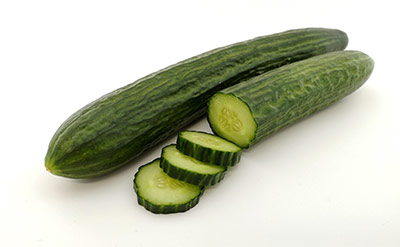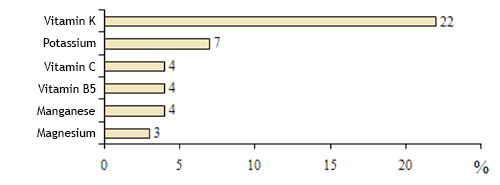
Cucumbers contain 95-98 % of water and are sometimes undeservedly considered of low value. According to nutritionists, one individual should consume at least 14-15 kg of cucumbers a year. The greatest value of cucumbers is that they contain basic minerals, especially potassium, calcium, magnesium, iodine in organic compounds, etc. We are used to having cucumbers with all meat dishes, and many even do not know that cucumbers help consume meat products better and break up animal fat. Even small quantities of cucumber reduce appetite, cool down, refresh. In medicine, they are used as metabolism regulators, gland function improvers, cell restorers. Cucumbers treat joint inflammations, bone deformations. Due to the high water and mineral content in cucumbers, they help to dissolve uric acid salts, which is good for the function of kidneys and liver and also improves cardiac function. Cucumbers purify blood well and prevent from calcification of blood vessels. Cucumbers should be consumed by nervous individuals, they also reduce arm and leg numbness (particularly when used as compresses). Cucumbers are a rather efficient means against constipation, prevent flatulence after surgery, and purify the body.
Eleonora Marcina,
/Teacher at Bulduri School of Gardening /
NUTRITIONAL VALUE OF CUCUMBERS
We say “fresh as a cucumber” for a reason! Due to the high water content, cucumber is a refreshing complement to a summer meal.
100 g of unskinned cucumbers contain an average of:
- 3.6 g carbohydrates
- 0.7 g protein
- 0.5 g fibre
- 0.1 g fat
- minerals (potassium, manganese, magnesium, and other
- Vitamin C and other
The energy value of cucumbers is 19 kcal/100 g of product.
The below picture shows the quantities of the most essential nutrients in cucumbers and reflects the percentage of the daily nutrient allowance in an adult.

Quantity of the most essential nutrients in 100 g of cucumbers, expressed as percentage of the daily allowance for adults.




